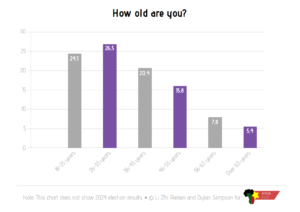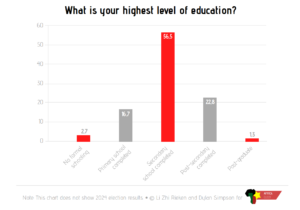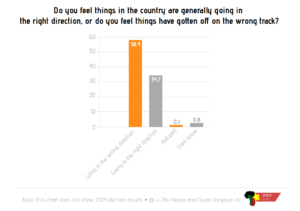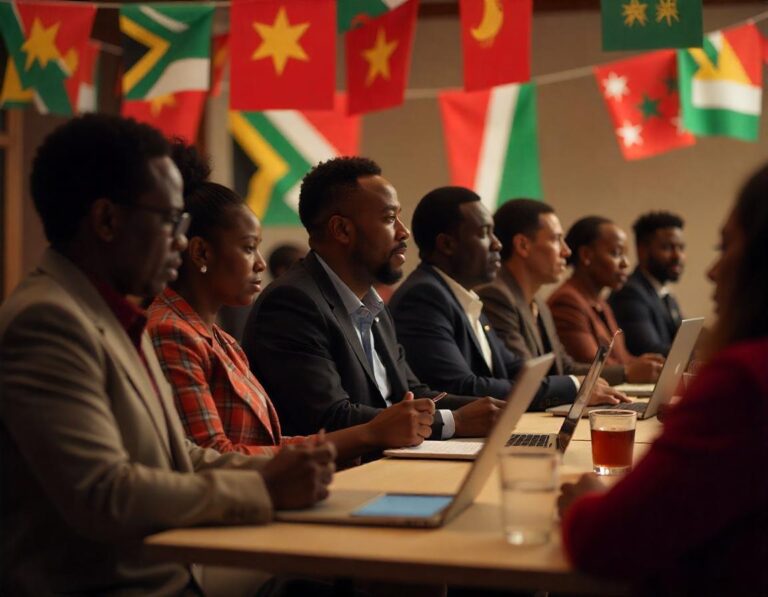The 27 November Namibia will be simultaneously holing parliamentary and presidential elections. The national political situation map in Namibia is complicated which makes it more difficult to assess the coming up elections. Nevertheless, certain patterns can be determined based on the sociological studies.
At the moment the SWAPO holds its leading positions and will, highly likely, be able to keep the majority of the seats in the parliament. The polls show that SWAPO demonstrates its aptitude to effectively run the country and to find solutions to facing challenges.
Although it is important to emphasis the fact that frustration is growing amongst the population. Many citizens claim that SWAPO has lost its ties with the populations demands and aspirations. As a result of this unsatisfaction we can see a growing interest towards alternative political actors, such as IPC.
According to the survey, 43,1% of Namibians claim that they would have voted for SWAPO if the elections were to be tomorrow. This result shows the sustainability of the Party which still has an important electoral capital.
The ruling party SWAPO has nominated its candidate: Netumbo Nandi-Ndaitwah. The survey shows that she is leading the race among the candidates for the head of the presidential office.
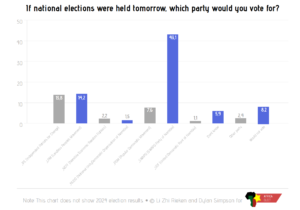
The LPM takes the second place, obtaining 14,2% of the polls. Its leader, Bernadus Clinton Swartbooi has the support of 15,6% of the respondents. Swartbooi, the ex-Deputy Minister of Land Reform has been removed from SWAPO and then created the Landless People’s Movement (LPM) in 2017, focusing on the redistribution of land in favor of indigenous people.
It’s quite difficult to imagine a scenario where the LPM will be able to obtain a significant number of votes amongst the Herero and Nama populations. Taking into consideration the huge amount of Swartboois partisans, the recent polls and quite an effective campaign of agitation of the LPM, we expect that the Party will be able to receive an important number of votes and its leader Bernadus Swartbooi will be able to come second at the presidential elections. The generation of people born in the post-apartheid period constitutes an ever-growing part of the electorate and the LPM gains its profits. The LPM will also benefit from the voters who were doubting between SWAPO and IPC, enlarging their electoral corpus.
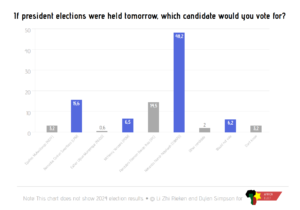
Another Party from the opposition, which hasn’t yet been represented in the Lower Chamber of the Parliament is the IPC of Panduleni Filemon Bango Itula. Itula, being a representative of the Ovambos, is closely tied to the history and the culture of this ethnic group which has played an important role in the struggle for independence of Namibia. The founder of the IPC Party, Itula, is able to retain the loyalty of his electorate. The results of the survey show that 13,8% of Namibians support his Party. Itula can also count on the votes of the NEFF electorate and other parties of the opposition who lack the chances at the elections. Itula himself gets a 14,5% rate of support within the conducted poll. Itula and the IPC emphasize their attention on more vast political reforms and social justice.
Will Swartbooi be able to truly beat Itula at the elections? This remains a contentious issue. But for many Namibians it is him (Swartbooi) and no other who remains the candidate of preference.
